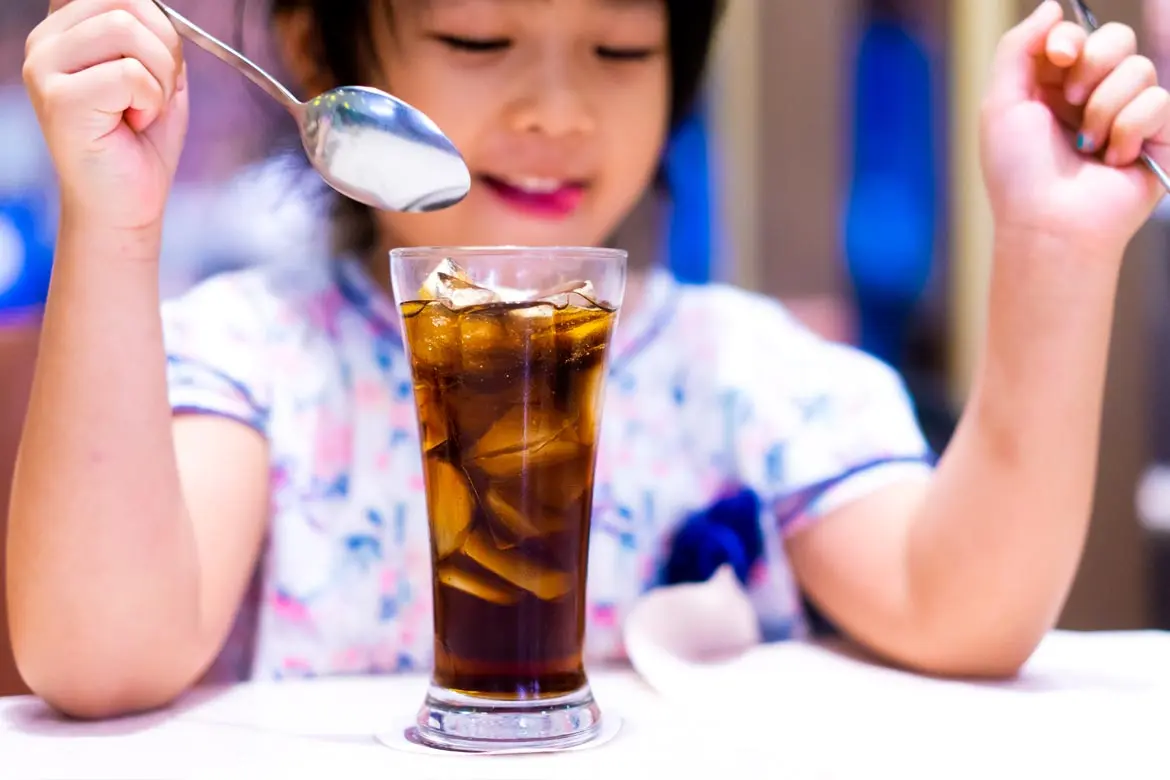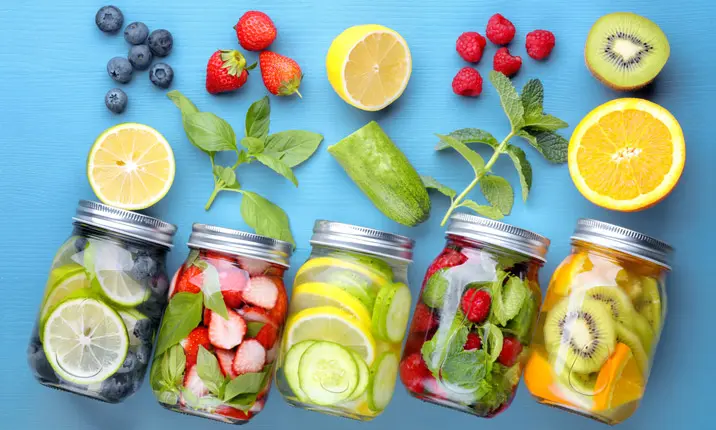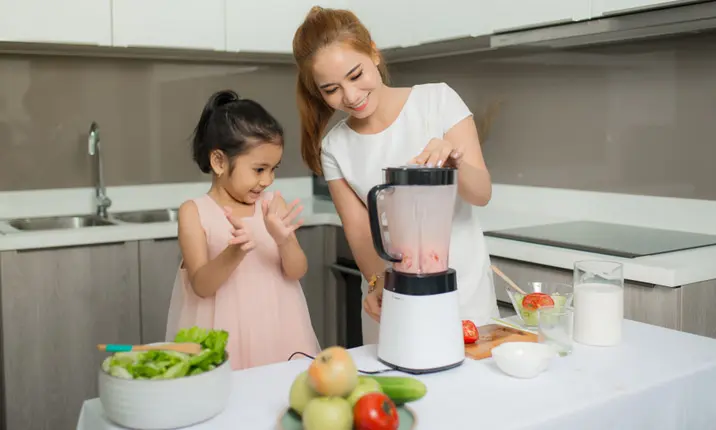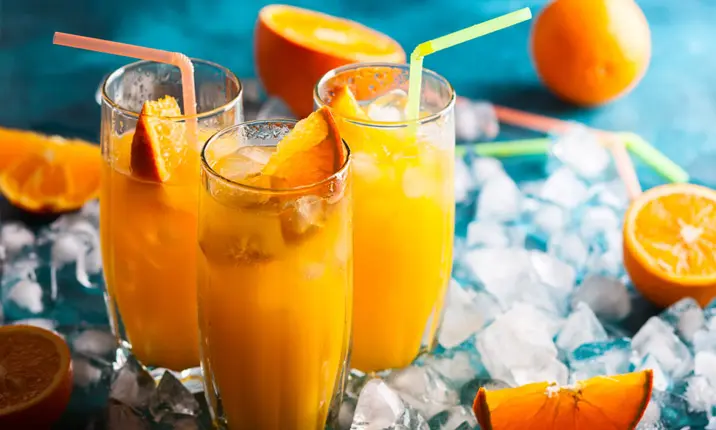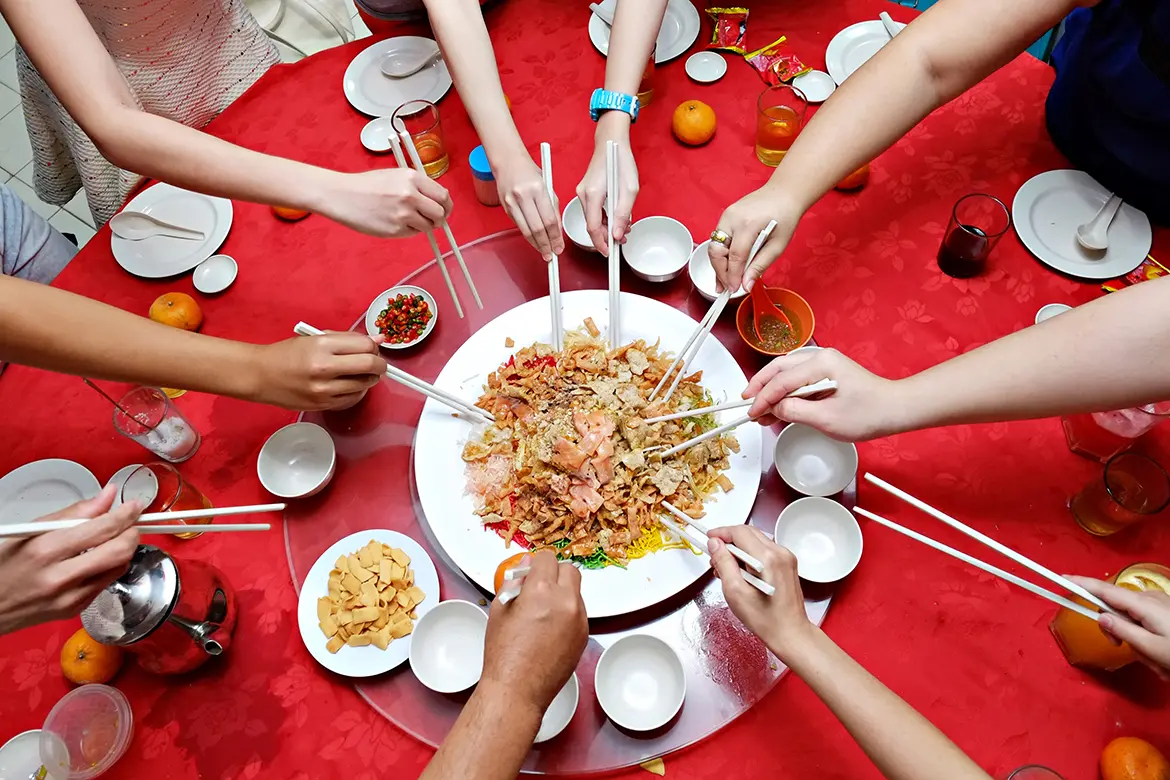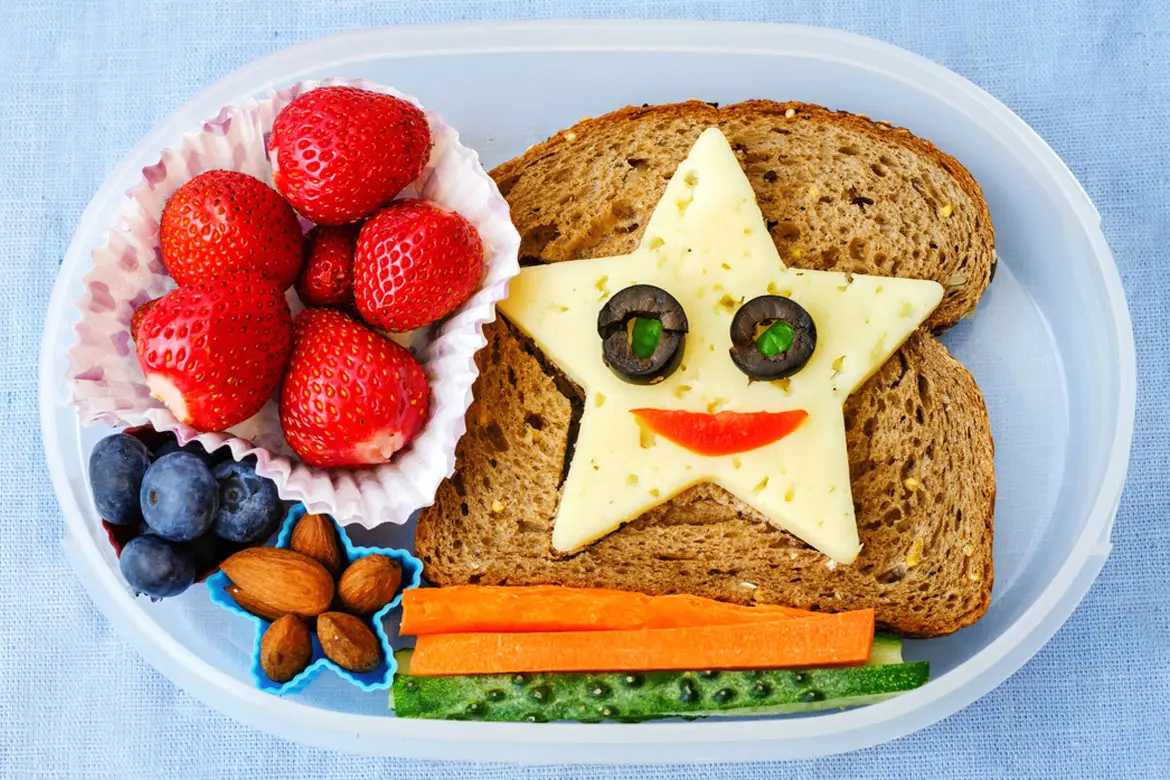Shouldn’t diet sodas be healthy, since they contain zero sugar?
Despite being sugar free, zero-sugar drinks – such as sodas like Coca-Cola Zero and Pepsi Max – often contain artificial sweeteners like aspartame and cyclamate. In addition, diet sodas also contain a mix of preservatives, colours, caffeine and food additives.
What are some possible negative effects of indulging in diet sodas?
Studies have shown that there is a correlation between consumption of these drinks with the increased risk of some medical conditions:
- Drinking diet soda daily was associated with a significantly higher risk of metabolic syndrome and type 2 diabetes, compared with non-consumption.
- Caffeine – which is found in certain diet sodas – is significantly associated with tiredness in the day, disrupted sleep routines and restless sleep in children.
- Acidity in diet soda can increase both the risk and rate of tooth decay.
What are some healthier alternatives to diet sodas for children?
1. Water
It may not be the most interesting of choices, but drinking water is probably the healthiest option on this list. It maintains our balance of bodily fluids, energises muscles, and is essential for the healthy function of various organs.
Due to kids’ rapid growth rate, they have greater water requirements than adults. Here is how much water your child should be drinking, based on their age group:
- 1 – 3 years: 0.9 litres of water
- 4 – 8 years: 1.2 litres of water
- 9 – 13 years: 1.6 – 1.8 litres of water
- 14+ years: 2.2 – 3 litres of water
2. Naturally flavoured water
If water is too boring to entice your kids, you can add some zest with some of nature’s very own sweeteners, such as:
- pineapple and mint
- cucumber and watermelon
- blueberries and raspberries
They are rich in nutrients, help to improve overall digestion, and fortify immunity.
Tip: Get your child involved in choosing their favourite combinations so that they will enjoy the drink even more!
3. Unsweetened milk
Little ones who love the taste of dairy can go for plain, unsweetened milk.
It is a great source of protein and contains calcium, phosphorous, magnesium and vitamin D, all of which are especially important for kids’ bone development.
Parents with children who are intolerant to dairy need not fret. You can opt for unsweetened plant-based milk options instead. These options include coconut, hemp, rice, and soy milk.
4. Herbal teas
Teas such as lemongrass, mint, rooibos and chamomile have a naturally sweet and refreshing aftertaste.
A hot cup of herbal tea may provide relief if your little one is feeling sick or under the weather. Since these tea options are all caffeine-free, they will not affect the quality of your children’s sleep.
5. Fruit smoothies
While it may be more convenient to buy ready-made juices and smoothies, your child may benefit from sipping on a homemade smoothie which will not contain added sugars or other preservatives.
Fruit smoothies are a good alternative to milkshakes and provide lots of antioxidants, which are crucial in boosting immune health. One homemade smoothie you can consider is Banana Berry, made with chia seeds, banana slices and berries.
The drink is rich in nutrients, and serves as a good dessert after meals. However, do note that fruits also contain sugar (fructose), and you should keep your child’s intake to around 150ml per day or at most 500ml. Keep this in mind for our subsequent recommendations!
6. Chia Fresca
A natural energy drink, Chia Fresca is made up of water, chia seeds, lemon and lime slices. and honey. Do not be deceived by the size of this seemingly small, but potent seed – it can absorb 9 – 10 times of its weight in water!
Chia seeds are also rich in numerous nutrients, including fibre, protein, calcium, iron and zinc. Once mixed with water, the seeds will expand and have a gel texture to them. Add a teaspoon of honey, a few slices of lemon and lime and viola – a zesty drink awaits your kids.
If your child is overweight, you may want to consider some of the previous options on this list like water or milk as this particular drink is high in energy.
7. Fruit and vegetable blends
Getting children to eat their greens can be tricky. But with fruit and vegetable blends like The CPR (made from carrots, pears, oranges and mint leaves), they will get all the richness of these super foods without you having to force-feed them.
Blend them all together and you are good to go! This drink is filled with antioxidant goodness, and vitamins including vitamin C and K.
8. Homemade electrolyte drinks
Electrolytes are minerals in our body that play a vital role in muscle movement. But electrolytes are often lost through sweat, and when they’re out of balance, painful muscle spasms may occur.
If your kid zips around the house a lot, it is important to replenish his or her electrolytes. Parents can do so by preparing homemade drinks with lemons or oranges.
Lemons contain potassium, calcium and magnesium, which are the body’s fundamental electrolytes. Blend these ingredients together and you will get a refreshing drink to keep your child hydrated.
